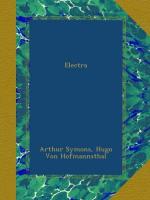|
This section contains 393 words (approx. 1 page at 400 words per page) |

|
1900s: In Vienna, Arnold Schoenberg develops a new approach to composing classical music. He turns away from traditional harmony and melody and develops music that no longer functions in an identifiable key. It becomes known as atonal music. The nature of his work, being revolutionary, is often misunderstood by the public.
Today: Schoenberg's music, along with that of his pupils Alban Berg and Anton von Webern, has long had a place in the contemporary classical repertoire. Atonal works are no longer as shocking to audiences as they were in Schoenberg's early days. The "twelve tone" method that he invented continues to influence contemporary composers.
1900s: Sigmund Freud publishes his seminal work, The Interpretation of Dreams, in which he applies the method of psychoanalysis to dreams. It becomes one of the most influential books of the century. Freud's central ideas are that dreams express the...
|
This section contains 393 words (approx. 1 page at 400 words per page) |

|




